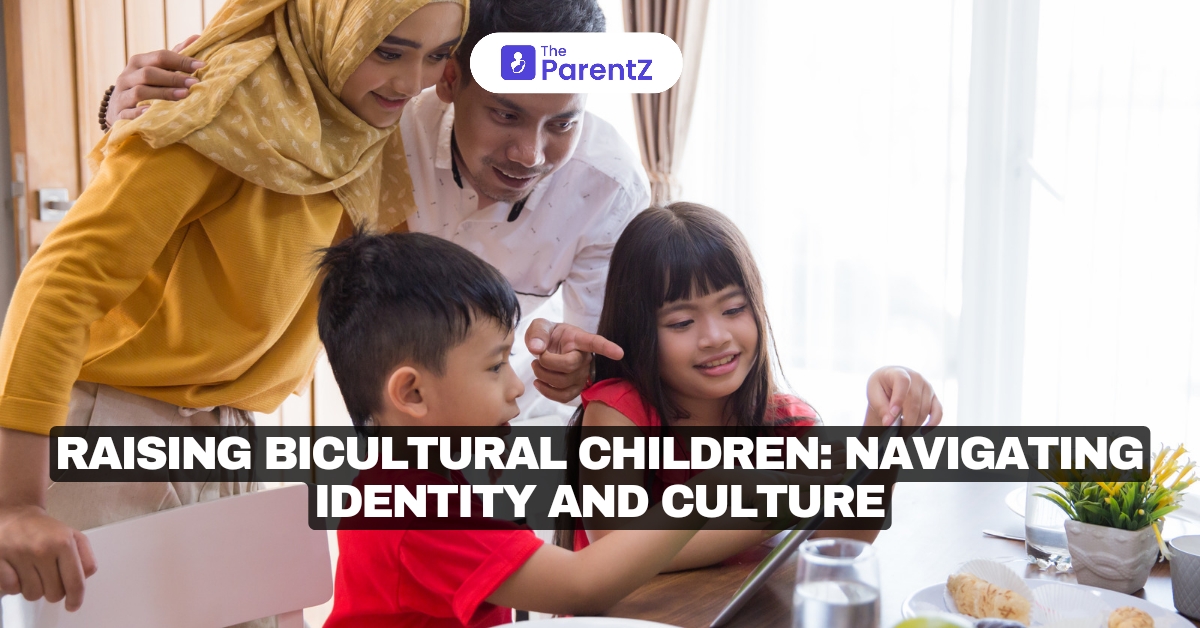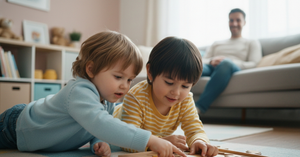Imagine growing up in a world where you're pulled between two different cultural worlds, each with its unique customs, values, and expectations. This is the reality for bicultural children, individuals who are exposed to and influenced by multiple cultures from a young age. Raising these children presents a unique set of challenges for parents as they strive to help their children develop a strong sense of identity while navigating the complexities of cultural diversity.
The Struggles of Bicultural Children
Bicultural children frequently grapple with questions of identity and belonging. They may find themselves in situations where they are asked, "Where are you from?" and feel the need to justify their existence in a world that often seeks to categorize them. For instance, a child of Mexican-American heritage might respond with, "I'm from New Jersey," only to be met with confusion about their ethnic background. This constant questioning can lead to feelings of confusion and shame as they struggle to reconcile their dual identities in a society that often emphasizes singular cultural affiliations.
The psychological implications of this struggle can be significant. According to research, bicultural kids can experience identity conflict, where they feel torn between the values and expectations of their home culture and those of the broader society. This conflict can manifest in anxiety, low self-esteem, and a sense of alienation. However, it can also lead to resilience and adaptability as these children learn to navigate diverse social landscapes.
Navigating Cultural Differences
Parents raising bicultural children often face the daunting task of instilling pride in both cultures while ensuring their children feel accepted in their immediate environment. This balancing act can lead to family tensions, especially when cultural practices clash. For instance, parents may have differing views on how to celebrate holidays or which language to prioritize at home. These disagreements can create an atmosphere of confusion for children, who may feel pressured to choose one culture over the other.
To mitigate these challenges, parents should encourage open communication. Encouraging children to express their feelings about cultural expectations can help them navigate their identities more confidently. When children feel heard, they are more likely to embrace both aspects of their heritage rather than view them as conflicting.
Psychological Theories and Benefits
From a psychological perspective, the concept of bicultural identity integration (BII) is essential in understanding how bicultural children develop their identities. BII refers to how individuals reconcile their dual cultural identities. Research suggests that children who successfully integrate their bicultural identities tend to exhibit higher self-esteem, greater creativity, and better problem-solving skills. They are often more open-minded and adaptable, which can be advantageous in diverse environments.
Moreover, studies have shown that bicultural individuals often excel academically and professionally due to their ability to navigate different cultural contexts.
Tips for Parents
To support their bicultural children effectively, parents can adopt several strategies:
- Embrace Both Cultures: Actively engage with both cultural heritages at home. This could involve celebrating holidays from both cultures, cooking traditional meals, and sharing stories that highlight the values and histories of each culture.
- Encourage Language Development: Language plays a crucial role in cultural identity. Parents should strive to maintain their native language at home, promoting bilingualism. This not only helps children connect with their heritage but also enhances cognitive flexibility and creativity.
- Create Safe Spaces for Discussion: Establish a setting where your children feel comfortable sharing their feelings about cultural identity. Regular family discussions about cultural experiences help children articulate their thoughts and feelings, fostering a deeper understanding of their bicultural identity.
- Model Cultural Pride: Parents should demonstrate pride in their cultural heritage through their actions. Speaking the native language in public, participating in cultural events, and sharing the significance of cultural practices can instill a sense of pride in children.
- Seek Community Support: Connecting with other bicultural families can provide a sense of belonging and support. Engaging in community events that celebrate diversity can help children feel less isolated in their experiences.
- Educate About Diversity: Teaching children about the richness of other cultures and the importance of diversity promotes empathy and respect for others. This understanding can help them handle social situations with confidence and grace.
Conclusion
Raising bicultural children is a rewarding yet challenging journey. By fostering open communication, embracing both cultures and modeling pride in their heritage, parents can help their children navigate the complexities of their identities. The psychological benefits of a well-integrated bicultural identity can lead to greater resilience, creativity, and adaptability, equipping children with the skills they need to thrive in an increasingly diverse world. Through understanding and support, parents can guide their bicultural kids toward a future where they feel proud of their multifaceted identities.








Be the first one to comment on this story.